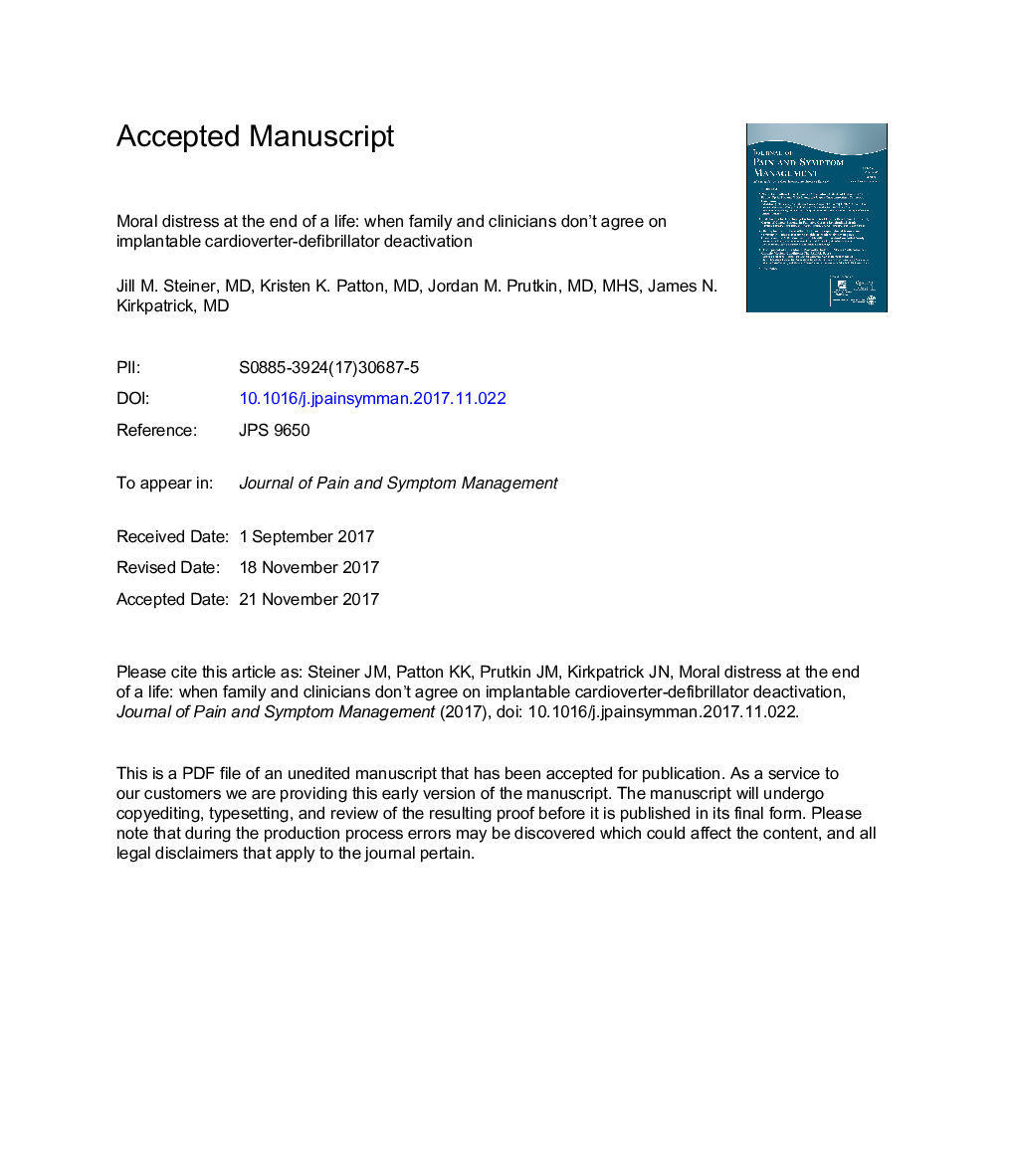| Article ID | Journal | Published Year | Pages | File Type |
|---|---|---|---|---|
| 8605800 | Journal of Pain and Symptom Management | 2018 | 13 Pages |
Abstract
A 63-year-old man with end-stage ischemic cardiomyopathy presented with incessant ventricular tachycardia. He had been hospitalized multiple times in the past year for severe heart failure. As he approached end of life and was regularly receiving defibrillator shocks, his care team recommended deactivation of his implantable cardioverter-defibrillator. However, his family did not wish to allow deactivation, reporting a religious obligation to prolong his life, regardless of the risk of suffering. The patient was unable to adequately participate in the decision-making process. An implantable cardioverter-defibrillator can serve to avoid sudden death but may lead to a prolonged death from heart failure. This possibility forces the examination of values regarding prolongation of life, sometimes producing disagreement among stakeholders. Although ethical consensus holds that defibrillator deactivation is legal and ethical, disagreements about life prolongation may complicate decision making. The ethical, technical, and medical complexity involved in this case speaks to the need for clear, prospective communication involving the patient, the patient's family, and members of the care team.
Related Topics
Life Sciences
Neuroscience
Neurology
Authors
Jill M. MD, Kristen K. MD, Jordan M. MD, MHS, James N. MD,
